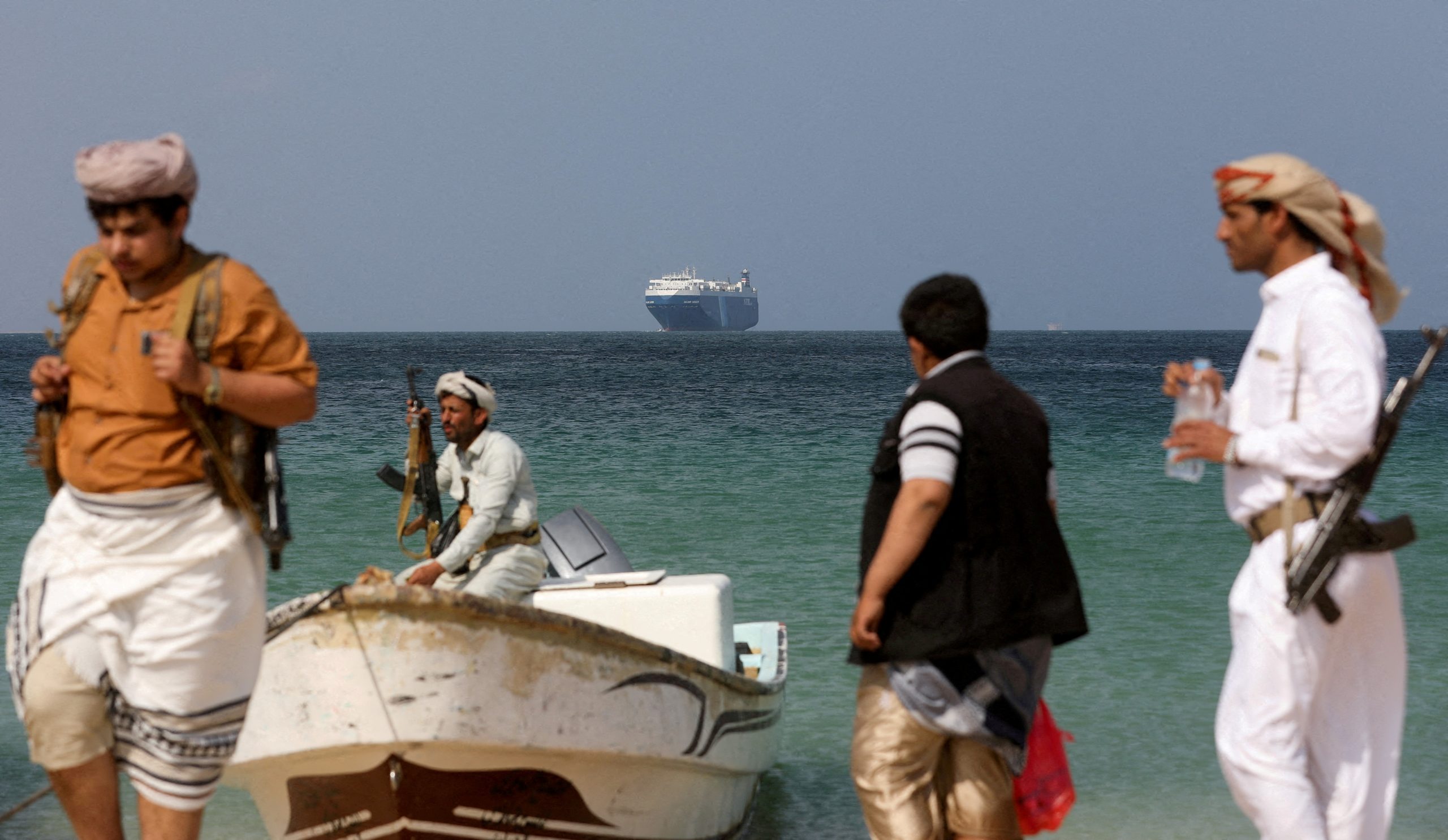In the rugged terrain of Yemen, where political lines blur and allegiances shift, the rise of the Houthi rebels marks a pivotal chapter in the nation’s turbulent history. The Red Sea, a critical piece in commerce and exchange, has become home to the Houthi rebels, a group causing chaos and disrupting geopolitics in the Middle East. Amidst the wreckage of failed agreements, their maritime attacks on ships from China, the U.S., and several other nations continue to shake up the lives of civilians across the Middle East hoping for an end to the conflict. However, as stated by Houthi spokesperson, Mohammed Abdulsalam, the attacks on civilian ships in late December were, “only the beginning.”
Since the tumultuous Arab Spring, the Yemeni government has become a focal point of instability, struggling to maintain control of its territory due to conflict with the Houthi rebels. The Houthis, named after their late leader Hussein Badreddin al-Houthi, are a Zaydi Shiite movement trying to overthrow Yemen’s Sunni majority government. Historically, the Sunni and Shia sects of Islam have faced a great divide, but these tensions have been especially high throughout Yemen’s recent past. In 2018, the United Nations attempted to mitigate the crisis between the Houthis and the Yemeni government through the Stockholm Agreement. The agreement included the withdrawal of forces from Hudaydah, Yemen’s principal port city on the Red Sea, a discussion on the contested city of Taiz, and prisoner swaps. These terms were drawn up to avoid military offense on Hudaydah and mitigate the impact of this conflict on Yemeni citizens. Regardless, the agreement failed, and as a result, neither side withdrew from Hudaydah, perpetuating tensions between the groups. The Houthis continued to attack Saudi Arabian targets throughout 2018 and 2019, and in 2021 they continued with heavier attacks on cities within Yemen, such as Marib. However, most recently, the Houthis have been attacking commercial ships in the Red Sea, causing a large disruption in trade routes and Red Sea shipping. Houthis have launched missiles towards Israel, claiming that they are battling to end Israel’s offensive in Gaza. But while the Houthi rebels claim they are fighting on behalf of the oppressed Palestinians in Gaza, this is not true. As noted by the Associated Press, “the ships…largely have had little or no connection to Israel, the U.S., or other nations involved in the war.” In reality, these attacks have affected the trade routes and economies of the UK, and countries in East Africa and South Asia the most. The group is a significant threat to the stability of geopolitics and the economic costs of global trade and shipping.
Houthi attacks pose a grave threat to Red Sea shipping. Attacks on ships in the Red Sea have caused a domino effect in the global trade market. Shipping vessels are avoiding the Suez Canal, a crucial waterway, traveling instead around the Cape of Good Hope. This rerouting adds approximately 4000 miles to shipping journeys, causing the costs and thus pricing of trade routes to increase almost five-fold. Houthi shipping attacks act as an adverse supply shock; the price of inputs for goods is increasing, reducing supply and increasing consumer prices for goods such as clothing, grains, and crucial food supplies. The attacks by Houthi rebels may increase global core goods inflation by 0.7 percentage points just during the first half of 2024. Additionally, the Houthis’ attacks have delayed the delivery of critical humanitarian items, such as food, water, and medical supplies, to areas in need of assistance in and around the Middle East, including Yemen, Sudan, and Ethiopia. In early February, the Houthis assaulted and immobilized a civilian ship; they threatened Yemen’s fishing industry with the risk of fuel spilling into the sea. Instead, the Houthis have jeopardized the ability to secure safe aid routes to Yemen, and essential food supplies often do not reach those in need, leading to widespread malnutrition and starvation among Yemeni civilians. The Houthis’ consistent access to dozens of missiles and drones calls into question how they are getting these materials. Who is supporting them?
The answer lies in the complex involvement of regional powers in this issue and the reason why the Houthis are a threat to the stability of geopolitics. The Shiite group is backed by Iran, a country that is also made up of predominantly Shia Muslims. Iran, though denying any involvement, supports the Houthis’ fight against the Sunni Yemeni government as a means to challenge Saudi Arabia’s influence in the region. By backing the rebels, Iran aims to weaken Saudi Arabia’s position and mobilize its network of militias as a display of force. Yemen has become a battleground for a proxy war between the two countries; Iran sees supporting the Houthi rebels as a way to strengthen its alliances with other groups and countries, like Hezbollah in Lebanon and the Assad regime in Syria. However, despite the escalating maritime threats, the response from other Middle Eastern countries, such as Saudi Arabia, has been somewhat muted, with some even turning a blind eye to the Houthi rebels’ actions. This reluctance to confront the rebels stems from a combination of factors, including geopolitical rivalries, economic interests, and the desire to avoid further escalation in an already volatile region. For example, countries like Iran and Qatar, which have strained relations with Saudi Arabia and its allies, see supporting the Houthi rebels as a means to counterbalance their regional adversaries. Because of these factors, the Houthis have an outsized influence on conflicts within the Middle East. To resolve this conflict, the international community, particularly regional powers and key stakeholders in the Middle East, must work together to de-escalate tensions, enforce maritime security measures, and support initiatives for a negotiated settlement in Yemen. Attacking Houthi rebels with bombings and missile launches, as the U.S. and the U.K. have done recently, is not the way to solve the crisis. Resolution may involve leveraging diplomatic channels, applying pressure on conflicting parties to adhere to international laws and conventions, and providing humanitarian assistance to alleviate the suffering of Yemeni civilians. Building up legitimate institutions to undermine the Houthis is a more favorable and more strategic approach. Additionally, efforts to address the root causes of the conflict, such as poverty, political marginalization, and sectarianism, are essential for long-term stability in Yemen and the broader Middle East region. Sustainable development initiatives, inclusive governance structures, and efforts to build trust among rival factions can help prevent future conflicts and create conditions for peaceful coexistence. Only through collective action and diplomatic engagement can countries hope to achieve lasting peace and prosperity in Yemen and the wider Middle East. However, considering the history of tensions in the Middle East and the common means for dealing with conflict, this outcome is unlikely in the near future.
Featured Image Source: Reuters






Comments are closed.